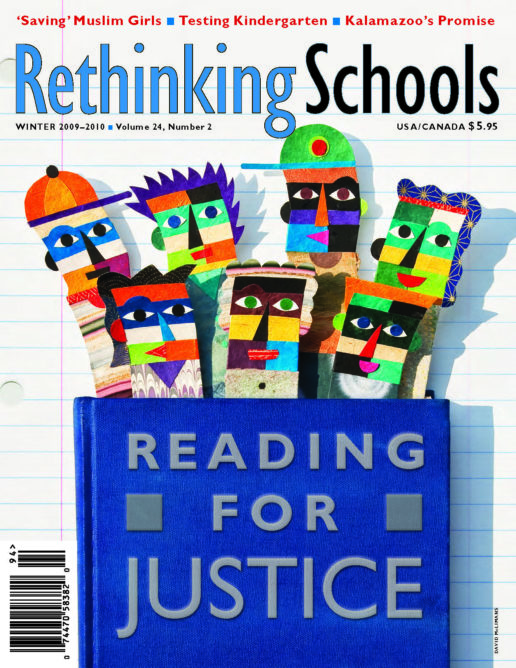Preview of Article:
“Baghdad Burning” Heats Up World History
Illustrator: Jordan Isip
“The trouble with world history is it started so long ago,” I complained to anyone who would listen as I wrestled with the best way to start the year for my 10th-grade World History students. In their first journal entries, many of my students had already told me they thought history was “boring.” I wanted them to see history as something alive that really mattered, filled with the stories of interesting, everyday people. How could I generate some enthusiasm for the past?
At the same time, I was worried about how to integrate curriculum about the war in Iraq. During the lead-up to the U.S. invasion, the topic came up naturally in class. But now students seldom raised it and were often resistant when I brought it up. “We’re burned out on Iraq,” they told me. How could I teach world history and not explore the current events that were sure to have an enormous impact, both on my students’ lives and on the world’s future? I knew I didn’t want to relegate today’s news to a few weeks in June, but I hadn’t had much success with such formulaic approaches as current events days or weekly news assignments.
At just that point of confused frustration, I stumbled across an extraordinary resource: Baghdad Burning, Girl Blog from Iraq and Baghdad Burning II. The author, whose pseudonym is Riverbend, was a young computer programmer in Iraq when the war started. First trapped in her house by the bombings and fighting, then barred from working because of the deteriorating situation of women, she turned to blogging about her everyday life, events in Iraq, and the international situation. These first-person accounts are extraordinarily well-written and compelling (Baghdad Burning won the 2005 Lettre Ulysses Award for the Art of Literary Reportage).

